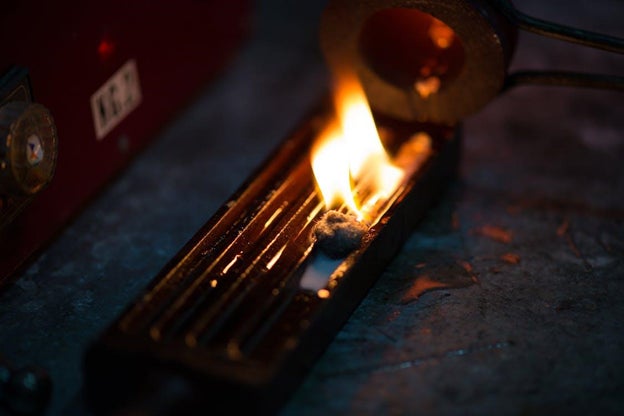Why You Must Not Ignore Gas Leaks?

Natural gas, commonly used for heating, cooking, and powering various appliances, is a valuable resource but poses substantial risks if not handled with care. Gas leaks can pose serious safety concerns and must not be overlooked.
The Dangers of Gas Leaks
Natural gas is highly combustible and can pose severe risks to life, property, and the environment. The potential dangers of gas leaks may include:
● Health Hazards
Gas leaks in homes often involve natural gas or propane, both of which can be harmful when inhaled. These gases can cause various health issues, including headaches, dizziness, nausea, fatigue, and breathing difficulties. Prolonged exposure to gas leaks can exacerbate pre-existing respiratory conditions and, in severe cases, can lead to unconsciousness or even death.
● Fire and Explosion Risks
Natural gas and propane are highly flammable; even a small spark or ignition source can trigger a fire or explosion. Ignoring a gas leak significantly increases the risk of such incidents, which can cause extensive damage to the property and pose a grave threat to the lives of the occupants.
● Environmental Impact
Gas leaks contribute to environmental pollution. Methane, a key component of natural gas, is a potent greenhouse gas, and its release into the atmosphere exacerbates climate change. Addressing gas leaks promptly is essential for personal safety and is also important for the environment, as it helps reduce the overall emissions of harmful gases.
● Financial Consequences
Ignoring a gas leak can have financial implications. Gas leaks result in wasted energy and can lead to increased utility bills. Additionally, dealing with the aftermath of a fire or explosion caused by a gas leak can result in significant financial burdens due to property damage and potential legal liabilities.
Common Causes of Gas Leaks
There can be several underlying reasons behind gas leaks at home. Identifying these causes is crucial for preventing and addressing leaks promptly. Here are some of the most common ones:
● Faulty Equipment or Appliances
Gas appliances like stoves, ovens, water heaters, boilers, and furnaces can leak due to wear and tear, aging, or poor maintenance. Damaged or malfunctioning components within these appliances can lead to gas leaks.
● Improper Installation
Incorrect installation of appliances or pipelines can cause gas leaks. If the connections, valves, or fittings are not installed properly or are loose, they can lead to gas leaks.
● Corrosion and Rust
Over time, gas pipes and fittings can corrode or rust, particularly if they are old or exposed to moisture. Corrosion weakens the structure of the pipes, making them susceptible to leaks.
● Physical Damage
Accidental damage to gas lines during construction, renovation, or landscaping activities can cause gas leaks. Excavation work or heavy objects hitting the gas lines can lead to punctures or fractures, allowing gas to escape.
● Natural Disasters
Natural disasters such as earthquakes, floods, or storms can damage gas pipelines, causing leaks. Ground movements during earthquakes can rupture gas lines, posing significant risks.
● Worn or Damaged Seals
Seals or gaskets in gas appliances, regulators, or valves can wear out over time, leading to gas leakage. Regular maintenance and replacement of worn seals are essential to prevent leaks.
● Loose or Improperly Fitted Connections
Loose or improperly fitted gas connections, valves, or connectors can lead to gas leaks. It’s important to ensure all connections are secure and appropriately fitted.
● Pressure Issues
Fluctuations in gas pressure within the pipelines can cause stress on the gas system components. This stress can lead to cracks, leaks, or ruptures in the gas lines or appliances.
● Defective Gas Regulators
Gas regulators play a vital role in controlling and maintaining the pressure of the gas supply. A defective or malfunctioning regulator can cause an imbalance in gas pressure, resulting in leaks.
Signs of a Gas Leak
Detecting a gas leak early can be life-saving. Here are some signs that may indicate a gas leak at your home:
● Unusual Smell
Natural gas and propane are odorless, but the companies that supply gas add a distinctive, sulfur-like smell (similar to rotten eggs) to help detect leaks. If you notice an unusual, strong odor of gas in your home, it’s a clear sign of a potential leak.
● Whistling or Hissing Sounds
A leaking gas pipe or fitting can produce whistling or hissing sounds. If you hear any unusual noises near a gas appliance, gas meter, or gas line, it could indicate a leak in the gas line.
● Physical Symptoms
Exposure to a gas leak can cause physical symptoms such as headaches, dizziness, nausea, fatigue, and difficulty breathing. If multiple family members experience these symptoms simultaneously or when at home, it could be due to a gas leak.
● Dead or Discolored Plants
If plants near gas lines or appliances start to wither, discolor, or die for no apparent reason, it could indicate a gas leak affecting the vegetation.
● Unexplained High Gas Bills
An unexpected increase in your gas bill without a change in usage patterns might suggest a gas leak. Leaks cause the wastage of gas, resulting in higher bills.
● Bubbles in Water
If gas is escaping near a water source, such as a sink or bathtub, you may notice bubbles in standing water caused by the gas rising to the surface.
● Condensation on Windows
Gas leaks can create excess moisture in the air. If you notice unusual condensation on windows or mirrors near gas appliances, investigate for a possible leak.
● Soot or Scorch Marks
Black soot or scorch marks around a gas appliance can indicate incomplete combustion, potentially due to a gas leak interfering with the appliance’s functionality.
● Feeling Unusually Tired
Gas leaks can reduce oxygen levels in the air, leading to fatigue or excessive tiredness even if you’ve had sufficient rest.
What to Do if You Suspect a Gas Leak?
If you notice any signs of a gas leak, prioritize safety by following these immediate steps:
- Evacuate – Leave the premises immediately, ensuring everyone else does the same.
- Avoid Flames or Sparks – Refrain from using anything that can create a spark, including switching on or off lights, using appliances, or starting a vehicle.
- Do Not Operate Electronics – Do not use phones or any electronic device near the suspected leak.
- Open Windows and Doors – If safe to do so, open windows and doors to allow the gas to disperse.
- Shut Off the Gas Supply – If possible, turn off the gas supply at the main shut-off valve.
- Call for Help – Contact your local gas provider and emergency services to report the suspected gas leak.
Importance of Professional Help
Gas leaks are not DIY projects. Seeking professional help is paramount for several reasons.
Certified professionals have the expertise to locate and repair leaks safely. They possess the necessary tools and equipment to detect even minor leaks that untrained individuals might overlook. Moreover, professionals can ensure that repairs and installations comply with safety standards, mitigating the risk of future leaks.
We at Bon Hoegler Plumbing have over 30 years of experience in gas line repair in New Jersey. Call us at (732) 595-2078 when you suspect gas leaks in your home. We also offer emergency services, so we are always available for help.
Preventive Measures to Avoid Gas Leaks
Prevention is key to ensuring your safety and the safety of those around you. Here are some preventive measures to avoid gas leaks:
- Professional Installation – Hire certified professionals to install gas appliances and connections, ensuring proper installation and reducing the risk of leaks.
- Regular Maintenance – Schedule regular maintenance for gas appliances, ensuring they are functioning correctly and free of leaks.
- Upgrade Aging Systems – If you have an older property, consider upgrading gas lines and appliances to newer, more efficient, and safer models.
- Be Mindful of Landscaping – Before digging or landscaping activities, be aware of the location of gas lines to prevent accidental damage.
- Install Gas Detectors – Consider installing gas detectors in key areas of your home to provide an early warning of potential leaks.
- Educate Household Members – Ensure that everyone in your household knows how to identify signs of a gas leak and the appropriate actions to take in case of a suspected leak.
Gas Leaks Can Be Deadly. Don’t Ignore Them!
Gas leaks are a grave concern that should never be underestimated. The risks associated with natural gas leaks demand extreme caution and immediate action.
Be vigilant, educate yourselves and your family, and get professional help to prevent and address gas leaks. By following preventive measures and taking appropriate actions, we can safeguard our homes and communities from the potential hazards of gas leaks. Remember, nothing is more important than safety; prioritize it.
Call us to work with the best plumbers in New Jersey with extensive experience in gas line repairs.
RECENT POSTS
categories
Archives
2024
2023
2022
2021
2020
2019
- December (2)
- November (2)
- October (2)
- September (2)
- August (2)
- July (2)
- June (2)
- May (2)
- April (2)
- March (2)
- February (2)
- January (2)

